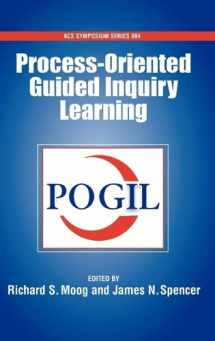
Process-Oriented Guided Inquiry Learning (POGIL) (ACS Symposium Series ; 994)
Book details
Summary
Description
The volume begins with an overview of POGIL and a discussion of the science education reform context in which it was developed. Next, cognitive models that serve as the basis for POGIL are presented, including Johnstone's Information Processing Model and a novel extension of it.
Adoption, facilitation and implementation of POGIL are addressed next. Faculty who have made the transformation from a traditional approach to a POGIL student-centered approach discuss their motivations and implementation processes. Issues related to implementing POGIL in large classes are discussed and possible solutions are provided. Behaviors of a quality facilitator are presented and steps to create a facilitation plan are outlined.
Succeeding chapters describe how POGIL has been successfully implemented in diverse academic settings, including high school and college classrooms, with both science and non-science majors. The challenges for implementation of POGIL are presented, classroom practice is described, and topic selection is addressed. Successful POGIL instruction can incorporate a variety of instructional techniques. Tablet PC's have been used in a POGIL classroom to allow extensive communication between students and instructor. In a POGIL laboratory section, students work in groups to carry out experiments rather than merely verifying previously taught principles.
Instructors need to know if students are benefiting from POGIL practices. In the final chapters, assessment of student performance is discussed. The concept of a feedback loop, which can consist of self-analysis, student and peer assessments, and input from other instructors, and its importance in assessment is detailed. Data is provided on POGIL instruction in organic and general chemistry courses at several institutions. POGIL is shown to reduce attrition, improve student learning, and enhance process skills.


We would LOVE it if you could help us and other readers by reviewing the book
Book review



